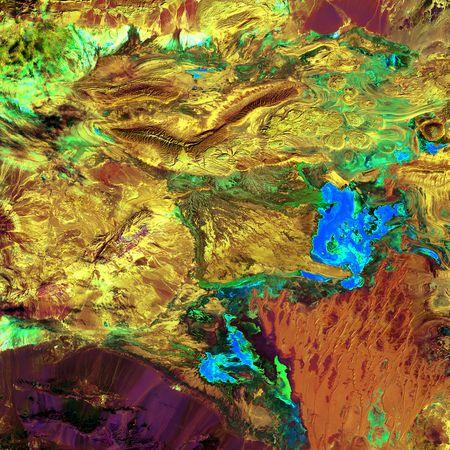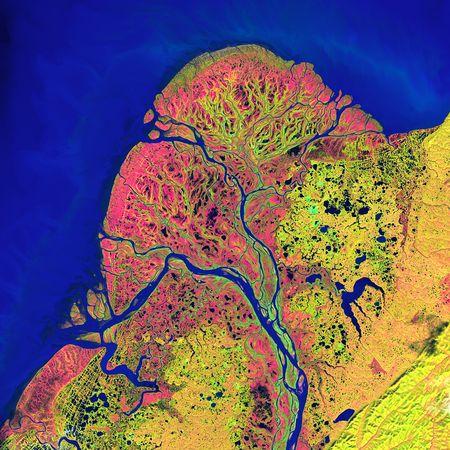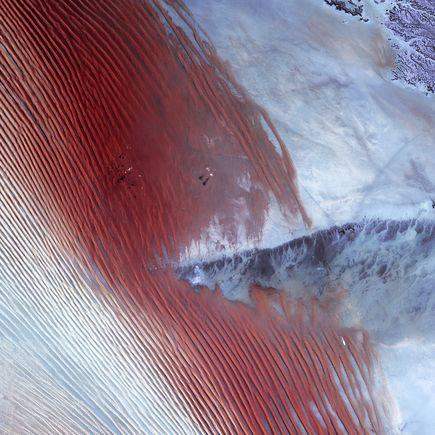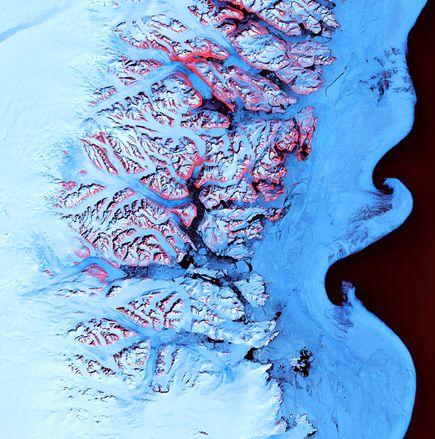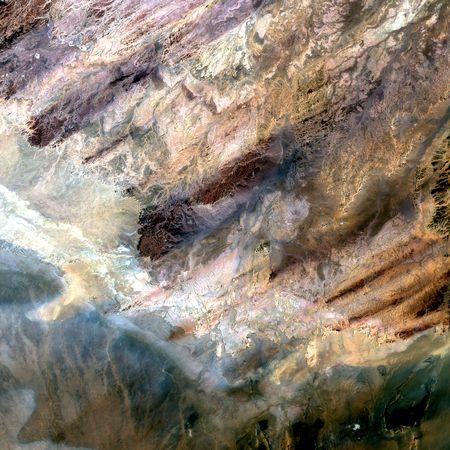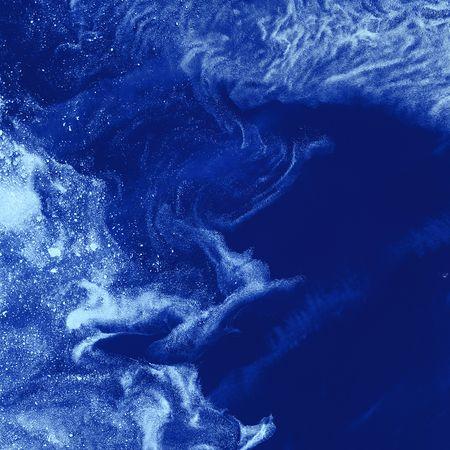God, Who are you. How magnificent you are ?
For centuries and centuries we are being told that God is above all and God is superior and greatest of all.
We explored the universe, saw Venus,Mars,Jupiter and all the planets and we are out of our Solar system now exploring the other solar systems.
But have we looked out on our own Earth’s Satellite images. Praise the Beauty of the Creator who has created the Earth with most beautiful aspects.
Seeing the pics given below , i am out of words.
Indeed, your the Greatest of all Oh God.
I have uploaded Earth’s Satellites images for you.
I found this info from Yahoo! who deserves the credit for the photos.
Earth’s Satellite Images
1) Like poster paints run wild, a 2003 image captures an “eclectic montage” of landscapes in Iran’s largest desert, the Dasht-e Kavir, or Great Salt Desert, according to the USGS. The mostly uninhabited region—a mix of dry streambeds, desert plateaus, mud flats, and salt marshes—covers an area of more than 29,730 square miles (77,000 square kilometers). (See more pictures of desert landscapes.) “Extreme heat, dramatic daily temperature swings, and violent storms are the norm in this inhospitable place,” the USGS said.
2) Like branching blood vessels, the Yukon Delta’s sinuous waterways empty into the Bering Sea in a 2002 satellite picture. The Earth-observing Landsat satellites—jointly managed by NASA and the USGS—sense light in bands of red, green, blue, and infrared. According to the USGS, when the colors are combined into a single image, “fascinating patterns, colors, and shapes emerge”—as in this Yukon Delta picture
3) White bits of cloud cast black shadows on the Rub’ al Khali desert (see map) near the border between Saudi Arabia and Yemen in a 2003 satellite picture. Earth’s largest “sand sea,” Rub’ Al Khali is striped with lines of wind-sculpted sand, which, in the above picture, are interrupted by a highland ridge. (See related aerial pictures of mysterious patterns in nature.) The Earth as Art 3 collection follows the Earth as Art 1 and Earth as Art 2 exhibitions, which have been shown in Washington, D.C.’s Library of Congress and in museums and art centers throughout the U.S.
4) In one of the new Earth as Art 3 satellite pictures, a complex “circuitry” of Greenland fjords among red-tinted mountains ease the flow of glacial ice into the Atlantic Ocean in 2001. (See a Greenland map). When temperatures rise in the summer, newly calved icebergs here join slabs of sea ice and older, weathered icebergs in an offshore slurry that sometimes “swirls into stunning shapes” (above, right)—according to the USGS
5) Tin Bider, an ancient and eroded meteor crater in the Algerian Sahara, glimmers in a 2009 picture. Nearly 3.7 miles (6 kilometers) wide, the crater was caused by a meteorite impact in this region of northern Africa roughly 70 million years ago.
6) Resembling distant galaxies amid clouds of interstellar dust, chunks of sea ice drift through swirls of grease ice near Canada’s Baffin Island (see map) in 2002. Sea ice often begins as grease ice, a soupy slick of tiny ice crystals on the ocean’s surface, according to the USGS. As the temperature drops, grease ice thickens and coalesces into solid ice slabs
 Thfire.com Everyday news that matters
Thfire.com Everyday news that matters 